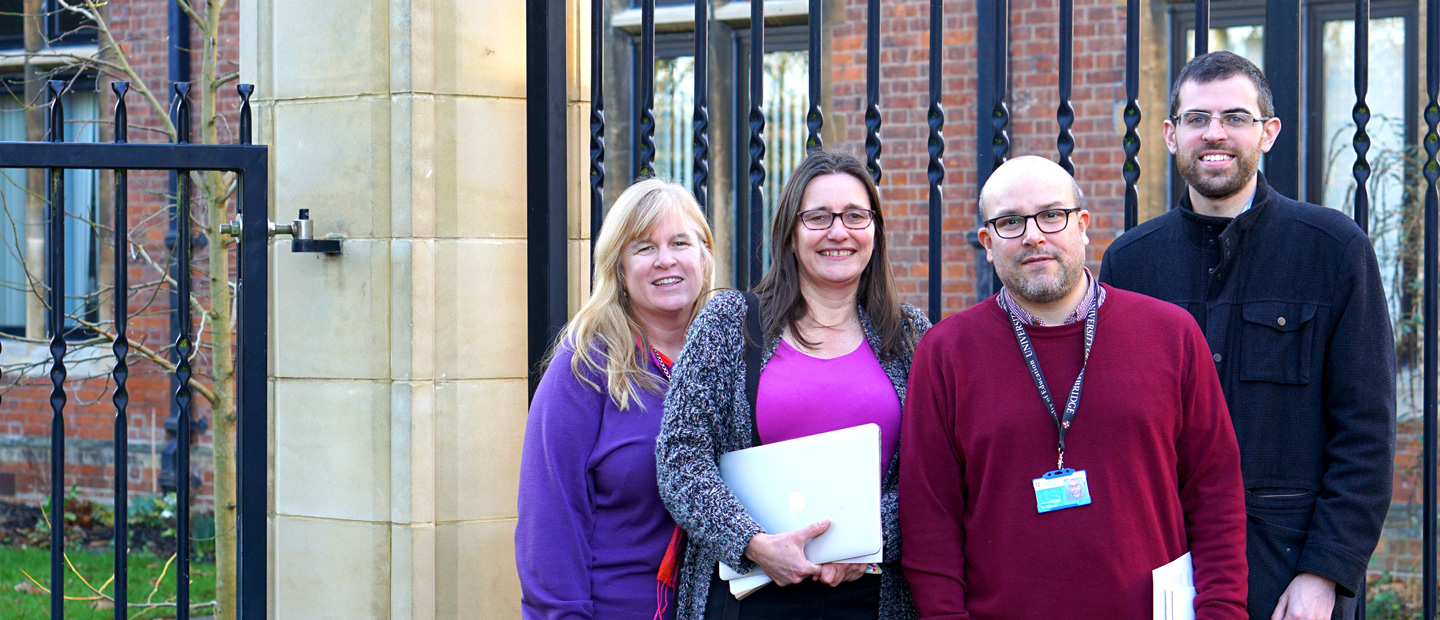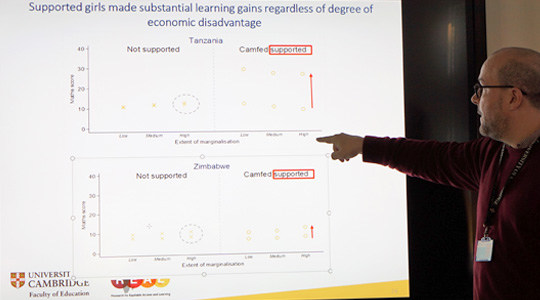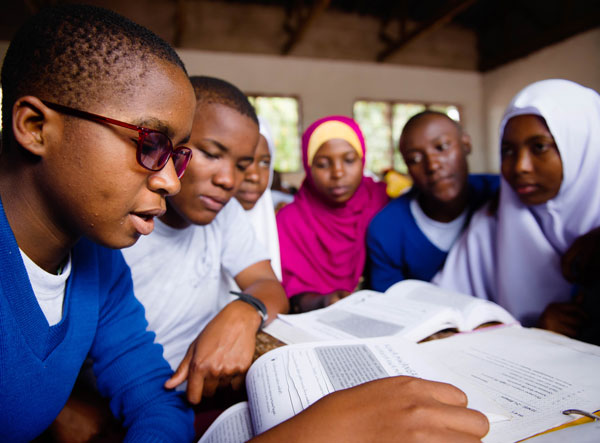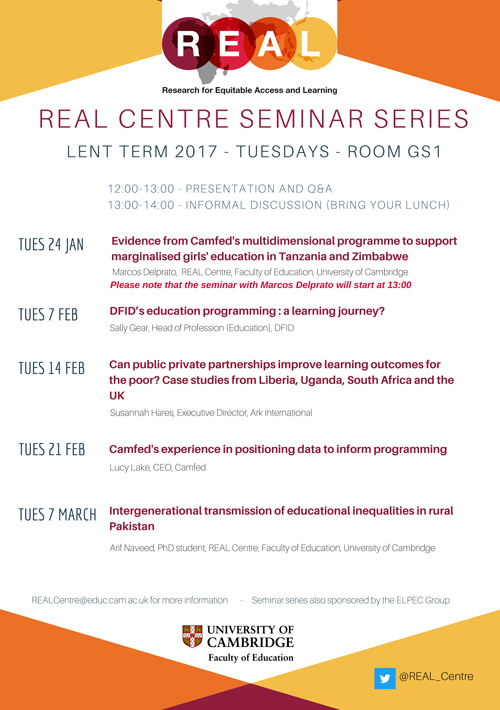
Cambridge researchers delve into CAMFED data

On January 24th, the Research for Equitable Access and Learning (REAL) Centre in the Faculty of Education at the University of Cambridge kicked off its seminar series on research, evidence, policy and practice in education and international development with a presentation ‘deep dive’ into CAMFED’s data, which has shown an unprecedented uplift in learning outcomes among the most marginalized girls.
The CAMFED program is helping to ensure that both the weaker learners and the stronger learners are staying in school. That was a striking result.
Professor Pauline Rose, Director of the Cambridge University REAL Centre
Dr. Marcos Delprato presented “Evidence from CAMFED’s multidimensional program to support marginalized girls’ education in Tanzania and Zimbabwe,” followed by a Q&A with researchers and CAMFED staff. CAMFED’s program in Zimbabwe and Tanzania, funded by the UK Government’s Department for International Development (DfID) Girls’ Education Challenge, targets 171,641 marginalized girls and 407,000 young people overall in 991 CAMFED partner secondary schools. It provides holistic support for girls to enrol and progress through school, including financial support; psycho-social support from CAMFED-trained Teacher Mentors; a contextualized life skills curriculum delivered by CAMFED alumnae trained as “Learner Guides”; and self-directed academic study guides for use by students within and beyond the classroom.
Professor Pauline Rose’s team of researchers has been crunching data which looks at a sample of 13,445 students in 262 secondary schools in both countries, in intervention and comparison districts. The midline data was collected using tools that assessed academic performance, measured attitudes to learning, and assessed wellbeing, and was compared to baseline data collected two years prior. Dr. Delprato’s work-in-progress seminar highlighted some of the impact the program is having.
“The CAMFED program is helping to ensure that both the weaker learners and the stronger learners are staying in school. That was a striking result,” said Professor Pauline Rose. This is important because weaker learners are more likely to drop out of school.

Dr. Marcos Delprato, Research Associate at the REAL Centre, shares preliminary findings from a deep dive into CAMFED’s girls’ education data from rural Tanzania and Zimbabwe
Girls with disabilities in CAMFED supported schools improved learning as much as those without disabilities.
Dr. Marcos Delprato, University of Cambridge REAL Centre

Students in a CAMFED partner school in rural Tanzania during life skills lessons with Zuhura, one of thousands of alumnae Learner Guides.
As part of the program, CAMFED’s alumnae act as role models and mentors.
Learner Guides, who understand the barriers weak learners face – including hunger, grief, and the pressure to marry young if students are pushed out of school – help children build their academic and personal confidence, learn more effectively, set goals, and pass their exams.
“One of my main take-aways from this analysis is that CAMFED’s program is helping the most marginalized girls the most. Drop-out rates are significantly lower for all children attending CAMFED partner schools, and even lower for those who are receiving financial support,” says Dr. Delprato.
“What is also great to see is that girls with disabilities in CAMFED supported schools have the same chance of improving learning as those without disabilities.”
The research continues as CAMFED and the REAL Centre partner to gain ever deeper insights, and work together to identify the true cost of supporting the most marginalized children to access school, succeed, and gain the skills necessary to live productive, independent lives after school.

